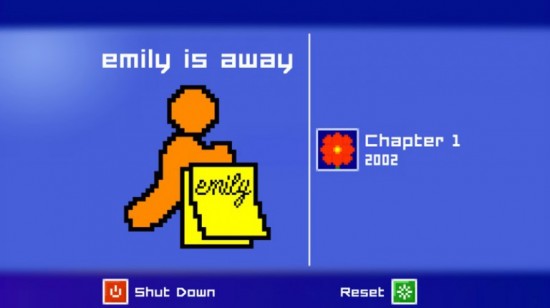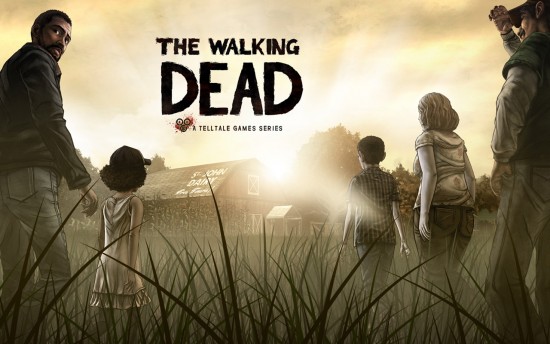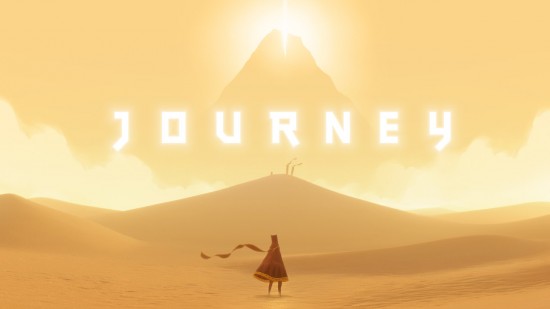Insert Topic – Emotional Responses From Games
Welcome to Insert Topic, where once a week I’ll spend some time talking about stuff. Topics will vary from what’s big in nerd culture to my experiences with trying games or movies or anything really that I’d written off as not my kind of thing. This time I’m talking about the emotional impact and response we get from playing games.
Entertainment, in all forms, is made to elicit an emotional response from us. Whether it’s a movie, television show, or book, their purpose is to pull us in and make us care. Video Games are no different, and over the years the lines that separate gaming from other outlets has blurred. We’re now part of a world where a game can run us through the same gamut of emotions as well, if not better than, anything else. Even before games had gripping narratives to suck us in, players were prone to some of the most basic emotions. Frustration when dying repeatedly, especially on the same obstacle; joy when finishing that previous frustration; anger when losing to your friend, or dying just before the finish; and of course sadness, when there was no game left to play.
There are moments in games that stand out among gamers. Sad moments, exciting moments, it doesn’t really matter, the point is that these games push our emotions to places you wouldn’t expect, and they’ve only gotten better, more refined over the years. The most common tactic I think you’ll see in a game is to build up a player’s attachment to a character only to tear them away. What better emotion to exploit than grief and sadness after all. Love it or hate it, not many gamers weren’t effected their first time through Final Fantasy VII when Sephiroth drove his sword unexpectedly through a praying Aries’ chest. That was nearly 20 years ago, things have changed a lot since then. Characters are killed off constantly in all media, no one is really safe until the title has come to an end. Recently Gamespot put up an episode of The Gist about the most depressing games of all time. While the list in the video is a matter of opinion, it just goes to show how invested we get as humans even with fictional universes.
In recent years there’s been surge of games driven almost solely by their narrative, games that pack an emotional weight you’d have trouble finding anywhere else. These titles often walk a line between a game, and what some would call an interactive novel–a theme I plan to talk about in a later topic. Some of these more than others possess very little what you’d call traditional game play mechanics, relying instead on the players to explore and interact with their environment to unfold a story. Tell Tale has produced some of the most well known games of this kind, their most popular being Walking Dead Season One. That first season of Walking Dead had all the best emotional ups and downs right up to the very end. It pulled its players through a gauntlet of challenges, more emotional than physical, to prepare them for the finale. By the time you reach the end, with whatever odd assortment of characters you’ve kept alive, you’re exhausted. Adrenaline has gotten you to this point as the fear of making the wrong choice, and the excitement or devastation that comes after slowly whittles you down to your base self.
Walking Dead guided you through the story while presenting branching dialogue, quick time events, puzzles, exploration, and a system where all of your choices reflected an outcome in the game to give you the feeling of completion when it was over. On the opposite side of that coin are games like Three Fourths Home or the recently released Firewatch, the former of which has zero gameplay, but makes up for it with a deep and compelling narrative. Driving home along a rural highway, talking to your family on the phone during a bad storm helps set an interesting atmosphere, but the dialogue is what drives it home. More akin to an old text adventure, Three Fourths Home makes you feel protective of your family, but defensive for yourself as they question your choices. Firewatch on the other hand puts you in the roll of a man running from life. The whole game is exploring the wilderness of a national park as you’ve taken a job as a fire lookout. From the very opening of the game you feel emotionally connected to Henry, you’re main character, and quickly make your decision on how you perceive him, or even more so how you see yourself in him, and how you feel about the only other human contact in the game, your boss over the radio.
All of these games have something very simple in common, they make us worry, they make us sad, and they make us desperate. Maybe nothing bad happens in some of these games. Maybe they’re designed in such a way that no character can be harmed, but the atmosphere of them creates such a tension and feeling that you just can’t be sure. Sadness and desperation aren’t the only thing games are good for. While titles like Brothers: A Tale of Two Sons or Shadow of the Colossus have inherently depressing stories, other games are brighter, and bring more excitement or joy to you. One of the deepest games to do this is Journey. From the outside it probably seems pretty straight forward as you wander these beautiful landscapes making your way through a strange world. At a certain point though the game takes a strange turn, and even though there is no dialogue spoken, no real narrative presented outright to the player, you start to feel lost and sad, only to be lifted back up for a joyful conclusion.
One last game I want to mention is Emily is Away. Much like Three Fourths Home, it’s little more than a text adventure as far as games go. Emily is Away is a game built around AOL Instant Messenger as you talk to your high school friend Emily, through your senior year and the following 4 years of college. The game offers nothing but text based dialogue, and options for that dialogue. The story may have the same ending for everyone, but getting there is such a unique experience full of nostalgia. That is if you’re of a certain age group, if you grew up a teenager in the late 1990s or early 2000s than you’re not going to see a text adventure, you’re going to see your youth. The exact situation may never have happened to you, but it’s still relatable. You’ll remember clicking on buddy profiles, changing your font and icons, and chatting away with friends. This game brings back the highs and the lows of being a teenager back in those days. Where many games bring out emotions based on your attachment to your player character and their interactions, Emily is Away pulls from your real experiences and how you project them onto your in game counterpart via his interactions with Emily.

There’s a reason the fairy tales you heard as a child ended with everyone living happily ever after. It’s what we want, we want characters we’ve grown to love to be happy. Think about how many games finished with the hero defeating the final boss, and even if it wasn’t world impacting, their world has changed. Maybe you get the girl in the end, or find out your best friend from hours early survived, all while riding the high of defeating the game’s final challenge. It’s what you expect in a game, it’s what you expect from most things. Our lives don’t always work that way, and in a really wonderful style video games are using that. Our world isn’t perfect, bad things happen. As crazy and unrealistic as games can be, they can also be incredibly real and thought provoking and give us an insight into ourselves we’d never thought possible. By playing with all our different emotions in such a safe setting we’re able to see who we are, how we react to things, and what we really care about.
- One-Quest was founded many millennia ago in a galaxy know as "n00b," by a foundation of Nerds. n00b was a small galaxy ruled by an evil empire, known as the "Hipstars." One-Quest formed with the sole purpose of removing the Hipstar empire from power, and restoring balance to all Nerds...









